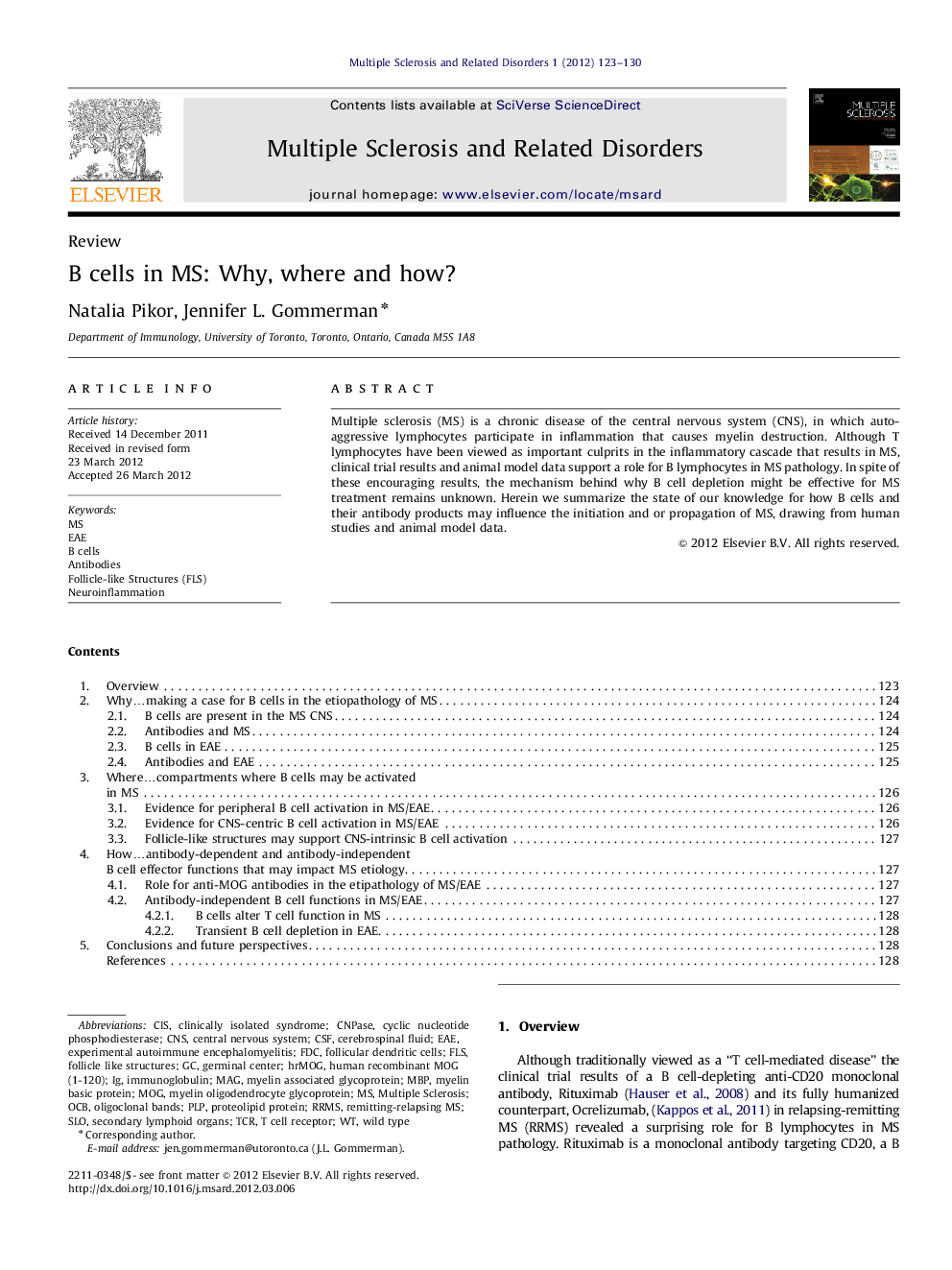| Article ID | Journal | Published Year | Pages | File Type |
|---|---|---|---|---|
| 2823940 | Multiple Sclerosis and Related Disorders | 2012 | 8 Pages |
Multiple sclerosis (MS) is a chronic disease of the central nervous system (CNS), in which auto-aggressive lymphocytes participate in inflammation that causes myelin destruction. Although T lymphocytes have been viewed as important culprits in the inflammatory cascade that results in MS, clinical trial results and animal model data support a role for B lymphocytes in MS pathology. In spite of these encouraging results, the mechanism behind why B cell depletion might be effective for MS treatment remains unknown. Herein we summarize the state of our knowledge for how B cells and their antibody products may influence the initiation and or propagation of MS, drawing from human studies and animal model data.
► B cell depletion (Rituximab) in RRMS patients results in improved clinical outcomes. ► The mechanism of action of Rituximab therapy remains unclear. ► “Follicle-like structures” within the CNS meninges may support B cells during MS. ► Ab-dependent and Ab-independent functions of B cells may contribute to MS.
